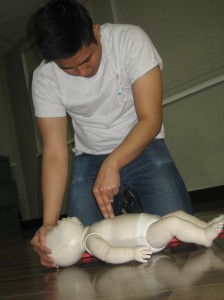Overview
There are common symptoms in babies and infants such as wheezing and coughing. These symptoms are due to airway situation other than asthma. Asthma is a condition where the airway is over-reactive hence narrowing the airway leading to restrictions of the airflow. The airway in babies and infants is small and no inflammation hence causing the symptoms. Wheezing that is recurrent is an indication that the child has asthma. Asthma cause coughing and wheezing to babies and infants.
Most kids with recurrent wheezing will grow out of it and don’t go on with getting asthma. Asthma is likely to be the main cause of the wheezing in children who extends the wheezing up to three years. There are risk factors for asthma in young children and symptoms that a doctor can indicate if your child has asthma: They include:
- Coughing, wheezing and shortness in breathing
Most kids with recurrent wheezing will grow out of it and don’t go on with getting asthma - Recurring symptoms
- Symptoms becoming worse at night or early in the morning
- Symptoms when the baby does not have a cold
- Symptoms triggered by cold weather, pets, emotions and exercises
- Historical condition of allergies
- Conditions of asthma in the family such as hay fever
- Recovering when given asthmatic-inhaled medicine
Treatment of asthma in babies is in many ways. Some of these ways are:
- If your child needs asthmatic medication, your doctor should explain to you on how to give the baby. These medicines inhaled other than being swallowed.
- The inhaler of babies and young children is attached to a small spacer chamber attached to the face mask. As the parent, you will press the inhaler to dispense the medicine in the holding chamber. The baby will breathe drawing the medicine from the spacer through the mask.
- If your child has gone through treatment and got better your doctor may request to continue with that approach. Your child has to be checked regularly because the changes in medicines are there as your child grows.
- If the coughs and wheezing continue despite the asthmatic medication, it means that your baby will need reassessing because there may be a condition causing the symptoms.
- If diagnoses show that your child has asthma, your doctor will give you a lesson on how to know in a situation when asthma in your child is getting worse. The doctor will also give you asthma action plans that will tell you which medicine to give the baby if this happens and also when to contact the doctor.
An asthma action plan is an important part that will help asthma stay well controlled. You should make sure that your child goes through check-ups regularly and give prescribed medicine accordingly.
Related Video On Asthma In Babies
https://www.youtube.com/watch?v=F3DVivcxOoM
